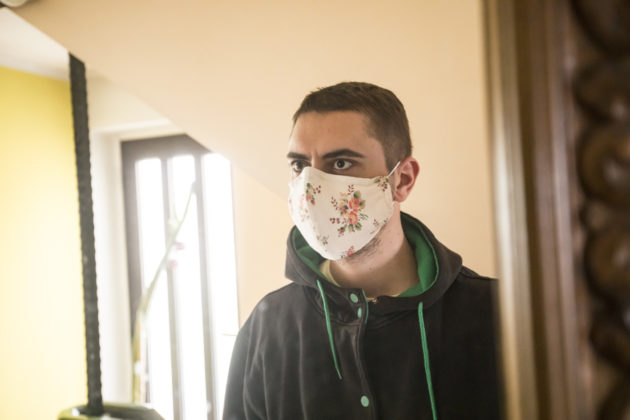Public transit not a COVID-19 super-spreader environment, transit advisory board says
The City of Edmonton will try to woo riders back to public transit as buses and LRT operate half full during the pandemic.
At a meeting Tuesday, city council’s urban planning committee is set to discuss how it can enhance safety on transit and communicate those measures to the public.
The Edmonton Transit Service Advisory Board will present a report with the conclusion that public transit is not a “super-spreader” environment, but is comparatively safe with measures in place.
Board chair Charles Kelly said the board started looking into safety issues early in the pandemic and has referred to jurisdictions in other countries for consensus on that conclusion.
“Transit isn’t as high a risk of transmission as people perceived it to be,” Kelly told CBC News in an interview Monday.
Kelly said that wearing masks, robust cleaning, more frequent buses on busy routes during peak hours and making people aware of these measures are all part of enhancing safety on transit.
Edmonton Transit Service has robust, frequent and thorough cleaning practices, Kelly noted, and that should be communicated clearly to the public.
With so many riders not taking public transit during the pandemic, revenue has decreased substantially. The city is down $14 million in 2020 because of low ridership.
As vaccinations ramp up and more people are likely returning to work in offices, the goal is to get more riders to return to public transit.
To improve safety and the feeling of safety, the board says the city could boost the existing mask mandate, communicate busy routes to riders in real time and show people how ETS is cleaning.
“I have been using the bus and I’m fine with it,” Kelly said. “I’m really quite comfortable using it.”
The bus network redesign, set to launch at the end of April, should address bus frequency during peak hours, Kelly said. The new network includes more frequent express buses running every five or ten minutes instead of 15 minutes.
Mandatory masks
Bus drivers currently don’t have to wear masks if they’re behind the shield that surrounds their seat — a policy Coun. Andrew Knack said the city could reconsider.
“I do still hear a lot of concerns from people saying, ‘I didn’t see my driver wearing a face covering,'” Knack said in an interview Monday. “I think in some people’s minds that sends mixed messages right now.”
It may be time to insist operators also wear masks — shield or no shield — to set a good example, Knack said.
“While compliance is generally high and we’ve seen that through the enforcement stats, it’s something that I think is causing people to maybe not get on the bus in the first place.”
Steve Bradshaw, Amalgamated Transit Union Local 569 president, said in January he encouraged drivers to wear masks but didn’t agree it should be a mandatory measure for operators.
Both Knack and Kelly agree that communicating with the public is key to assuaging riders’ trepidation of getting back on the bus.
“All in all, I think the transit service is doing a very good job on being on top of this,” Kelly said. “Let them know what ETS is doing to support these recommendations, get that information out there.”
Coun. Aaron Paquette said it’s important for the city to have a safe, functioning transit system and it’s a good time to address the larger safety issues related to transit, including incidents of racism, drug use around stations and social disorder.
“With all of these social pressures that have sort of become a little bit more amplified during this time of pandemic, this is an opportunity to really take a look at these issues, get a handle on them and finally start solving them.”


